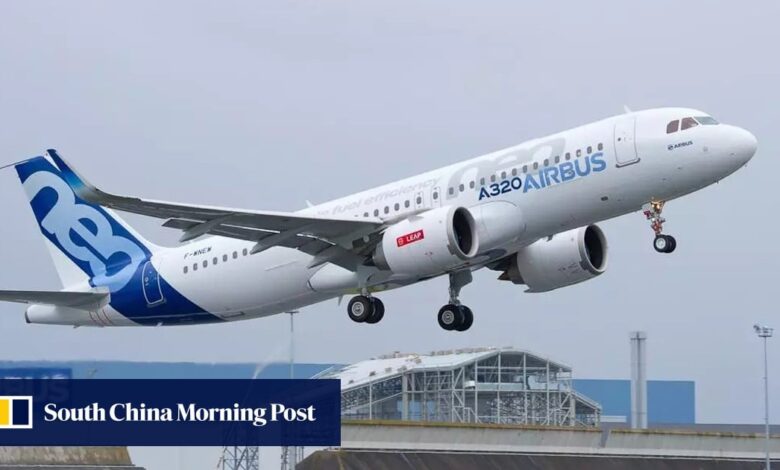Hong Kong flag carrier Cathay Pacific seals cut-price deal on 32 new Airbus jets worth HK$36 billion

[ad_1]
Hong Kong’s Cathay Pacific Airways has finalised a cut-price deal for 32 aircraft worth HK$36 billion (US$4.66 billion) from Europe’s Airbus, a move an analyst said would guarantee the availability of new aircraft as the city’s flag carrier pushed ahead with expansion plans.
The airline said in a filing on Friday it had bought the Airbus aircraft for the “basic price” of HK$36.35 billion, but had negotiated “significant price concessions”.
The airline said the basic cost was made up of prices for the airframe, optional features and engine.

It added it was normal business practice in the industry not to disclose the actual amount paid as that would mean the loss of the price reduction.
Cathay said in August it intended to buy up to 32 Airbus 321neo and A320neo planes as it expanded its fleet.
The manufacturer said the acquisition doubled Cathay group’s total orders for the A320neo family to 64 and that 13 had already been delivered.
The extra 32 aircraft will be used to expand the fleets of Cathay Pacific and its budget arm HK Express.
The airline said the new jets would mostly be used on routes to mainland China and elsewhere in Asia.
Cathay, HK Express and the company’s cargo carrier Air Hong Kong operate 225 aircraft in total.
The airline said it expected the latest order of aircraft to be delivered by the end of 2029.
Hong Kong’s Cathay to add flights to mainland, passenger numbers hit 11 million
Hong Kong’s Cathay to add flights to mainland, passenger numbers hit 11 million
Cathay added the jets would improve the “efficiency and capability of the fleet over time at competitive operating costs while providing high standards of passenger comfort and safety”.
The deal came after a purchase agreement between Airbus and Cathay’s aircraft acquisition arm was struck in 2017.
The company said the purchase was intended to be financed “wholly or in part” in ways that included a finance lease through a bank loan and a third party leasing firm, with an option to buy at the conclusion of the arrangement, commercial bank loans or its own financial resources.
Its filing added payment for each of the aircraft would be made in eight instalments.
“The whole arrangement indicated Cathay is positive about its medium-term development, so the purchase will guarantee the availability of new aircraft for Cathay in the longer term,” he explained.
Hong Kong’s Cathay Pacific pledges to hire 800 cadet pilots this year and next
Hong Kong’s Cathay Pacific pledges to hire 800 cadet pilots this year and next
Law highlighted that most of Cathay and HK Express’ regional and mainland routes used Airbus jets so flight crews and maintenance staff were familiar with them.
“I think it is natural for Cathay to purchase more aircraft of the same model to fly similar routes,” he said.
“Cathay is one of the world’s leading airline groups and we are proud to be part of its recovery and growth plan,” Christian Scherer, Airbus’ chief commercial officer and head of international, added.
“With a significant reduction in fuel consumption, the aircraft will also bring an immediate contribution to the Cathay group’s sustainability goals.”
Airbus said the A320neo family was the world’s most popular single-aisle aircraft.
August marked a return to profit for Cathay, spurred by strong demand after the post-pandemic reopening of the city’s borders and higher ticket prices.
The company reported a net profit of HK$4.26 billion for the first half of 2023 after losses of HK$33.7 billion over three years because of the devastation wreaked by Covid-19.
[ad_2]
Source link





